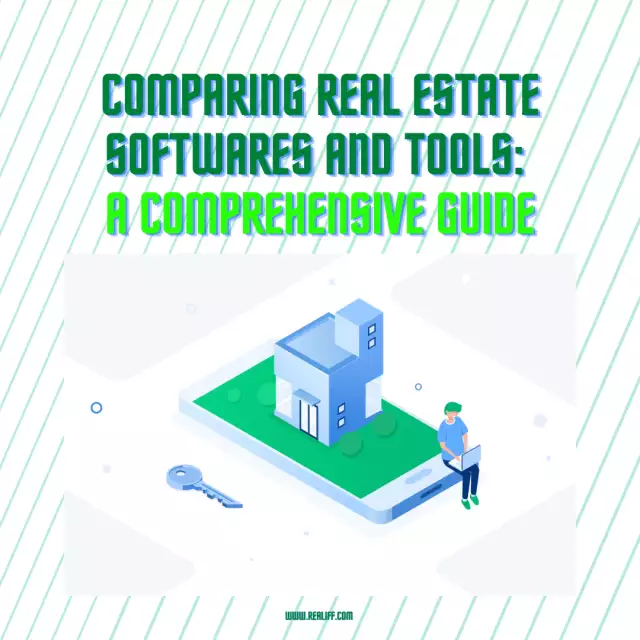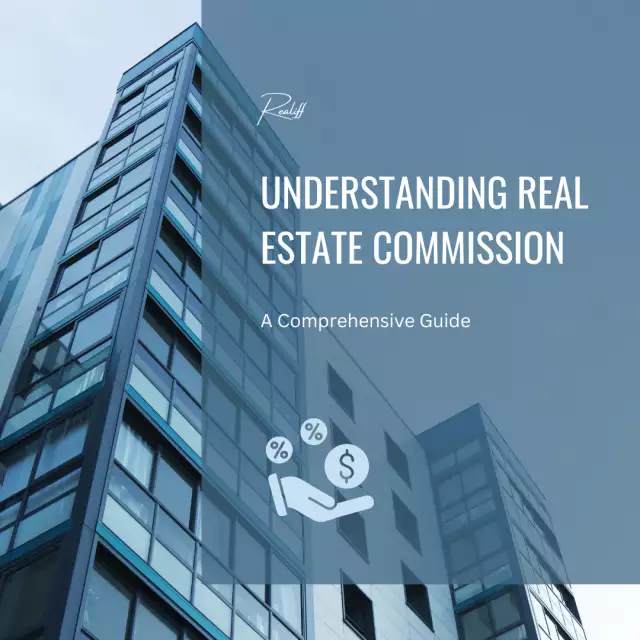Exploring the Dynamics of Real Estate Brokerage: A Comprehensive Guide
Exploring the Dynamics of Real Estate Brokerage: A Comprehensive Guide
Navigating the real estate industry can be an intricate journey, especially when trying to distinguish between various roles and responsibilities. Real estate brokerages and agencies play crucial roles within this industry, each fulfilling distinct functions. This article offers an in-depth exploration of real estate brokerages, their operations, differences from agencies, and the career paths they offer. Understanding these nuances will help aspiring professionals and those looking to navigate the property market more effectively.
What is a Real Estate Brokerage?
A real estate brokerage is an entity managed by an owner-broker or managing broker responsible for supervising the activities and transactions of agents and brokers working under them. These brokerages can vary significantly in size, from small, single-person operations to large multinational corporations with thousands of salespeople. Brokerages serve as the foundation for real estate transactions, ensuring legal compliance, ethical conduct, and efficient operation.

Exclusive Buyer Agency
Exclusive Buyer Agencies, also known as Exclusive Buyer Brokerages, differentiate themselves by solely representing homebuyers. These agencies do not promote properties or accept listings from sellers. Exclusive buyer agents adhere to stringent standards and ethical codes focused on safeguarding buyer interests. This dedication ensures that the agents always prioritize the needs of the buyer, providing unwavering advocacy throughout the purchasing process.
Real Estate Agents vs. Brokers
Key Differences
Real Estate Agents:
- Licensed:Agents are licensed professionals authorized to help clients buy, sell, and rent properties.
- Sponsorship:They must operate under a sponsoring broker or brokerage firm.
- Compensation:Agents earn commissions, typically a percentage of the property's sale price.
- Roles:They can serve as listing agents (representing sellers) or buyer's agents (representing buyers).
Real Estate Brokers:
- Additional Training:Brokers undergo more extensive training and meet higher licensing requirements.
- Independence:They can work independently and establish their own brokerage firms.
- Employment:Brokers have the authority to hire other agents and receive a portion of their commissions.
- Positions:They can function as associate brokers, managing brokers, or principal brokers.
Real Estate Vs Real Estate Broker
Real estate agents are instrumental in facilitating transactions between buyers and sellers or owners and renters. They manage offers, counteroffers, and queries between parties, guiding clients through necessary paperwork and legalities. Listing agents assist in setting prices, staging homes, marketing properties, and negotiating sales terms. On the other hand, buyer's agents help clients find properties that meet their criteria, arrange inspections, and negotiate purchase terms.

While brokers perform many of the same tasks as agents, they carry additional responsibilities. Brokers can work independently, hire agents, and manage real estate firms. Associate brokers work under other brokers, managing brokers oversee office operations, and principal brokers ensure compliance with laws and regulations, maintaining the brokerage's integrity and legality.
How to Become a Real Estate Broker
- Education:Attend a state-approved real estate sales class to gain foundational knowledge.
- Licensing Exam:Pass the real estate agent license exam required by your state to practice legally.
- Work Experience:Accumulate experience in the real estate industry to understand practical aspects.
- Certifications:Obtain additional real estate certifications to enhance your professional credibility.
- Broker Training:Complete a state-approved real estate broker training class for advanced knowledge.
- Broker Exam:Pass the state exam to become a licensed broker, enabling independent practice.
Real Estate Professionals: Agents, Brokers, and Realtors
A realtor is a real estate professional who is a member of the National Association of Realtors (NAR). Realtors can be agents or brokers and must adhere to a strict code of ethics, ensuring transparency, honesty, and client advocacy. This affiliation signifies a commitment to the highest standards of the real estate profession.
Benefits of Being a Real Estate Agent vs. a Broker
Real Estate Agent:
- Less Training:Requires less education and experience compared to brokers, making it more accessible.
- Lower Liability:Agents have fewer financial and legal responsibilities as they operate under a broker's supervision.
- Focused Role:Primarily focus on client transactions without the burden of administrative duties.
Real Estate Broker:
- Work Freedom:Brokers enjoy greater autonomy and can establish their own brokerage firms.
- Higher Earnings:Potential for higher earnings through multiple revenue streams, such as commissions from agents they employ.
- Industry Authority:More authority in the industry due to rigorous training and experience.
- Career Flexibility:Broader career options, including property management and business ownership.
Types of Real Estate Agents
- Listing or Selling Agent:Represents property sellers, sets prices, markets homes, stages properties, and negotiates sales terms.
- Buying or Buyer's Agent:Assists clients in finding and purchasing properties, arranges inspections, negotiates terms, and ensures the property meets the client's criteria.
- Dual Agent:Represents both buyers and sellers in a transaction, which requires careful management to avoid conflicts of interest.
- Transaction Agent:Facilitates deals between buyers and sellers without representing either party's interests, ensuring compliance with relevant laws and ethical standards.
Types of Real Estate Brokers
- Associate Broker:Licensed but chooses to work under another broker, typically not supervising other agents.
- Managing Broker:Oversees daily operations, hires agents, and manages administrative staff to ensure the smooth functioning of the brokerage.
- Principal or Designated Broker:The highest-ranking officer in a real estate firm, ensuring all activities comply with legal standards and bearing responsibility for the firm's actions.
Real Estate Agent vs. Broker: Deciding Your Career Path
Benefits of Being a Real Estate Agent:
- Fewer Requirements:Less coursework and experience required, making it easier to enter the field.
- Lower Liability:Fewer financial and legal responsibilities, reducing risk.
- Client Focus:Primarily focuses on client transactions without administrative duties, allowing for more personalized service.
Benefits of Being a Real Estate Broker:
- Independence:Can work independently or start a brokerage, offering more control over business operations.
- Higher Earnings:Potential for higher earnings through multiple income streams, including commissions from agents they employ.
- Authority:More industry authority and career flexibility, enhancing professional standing.
News and Updates in Real Estate Brokerages
As the real estate industry evolves, staying updated with the latest news and trends is crucial. Recent developments have seen an increase in the use of technology to streamline brokerage operations. Virtual tours, AI-driven customer management systems, and blockchain for secure transactions are becoming standard practices. Additionally, regulatory changes and market shifts due to economic factors continue to shape how brokerages operate.
"Real estate brokerages are at the forefront of innovation in the property market. Embracing new technologies and adapting to changing market dynamics is essential for success in this competitive field," says Jane Smith, a renowned real estate broker and industry thought leader.

The Most Comprehensive Tips for All Aspects of Real Estate Brokerage
- Stay Informed:Keep up with industry news, trends, and regulatory changes to remain competitive.
- Leverage Technology:Use the latest tools and platforms to enhance efficiency and client satisfaction.
- Network:Build a strong network of industry contacts and clients to expand business opportunities.
- Continual Education:Pursue ongoing education and certifications to stay ahead of industry developments.
- Client Focus:Always prioritize the needs and interests of your clients to build trust and loyalty.
- Marketing:Develop robust marketing strategies to promote your services and attract new clients.
- Legal Compliance:Ensure all activities comply with state and federal laws to avoid legal issues.
Frequently Asked Questions about Real Estate Brokerages
Q. Why should I choose a real estate brokerage? A.Choosing a real estate brokerage provides access to experienced professionals, comprehensive resources, and industry expertise, making the buying or selling process smoother and more efficient.
Q. When can I start working as a real estate agent? A.You can start working as a real estate agent once you have completed the required education, passed the licensing exam, and obtained sponsorship from a licensed broker.
Q. Where can I find accredited real estate brokerages? A.Accredited real estate brokerages can be found through industry associations, online directories, and local real estate boards.
Q. What is the difference between a real estate agent and a broker? A.A real estate agent helps clients buy, sell, and rent properties under a broker's supervision. A broker has additional training and licensing, allowing them to work independently, hire agents, and manage brokerages.
Q. Who can become a real estate broker? A.Anyone who meets the education, experience, and licensing requirements set by their state can become a real estate broker.
Q. How do I choose the right real estate brokerage? A.Consider factors such as the brokerage's reputation, support services, technology, training programs, and commission structure when choosing the right real estate brokerage.
Conclusion
Understanding the differences between real estate agents, brokers, and realtors is crucial for anyone considering a career in real estate. Each role has its unique responsibilities, benefits, and career paths. Whether you choose to become an agent or a broker, the real estate industry offers diverse opportunities for professional growth and financial success.
Realiff.com, with its AI-driven technology and diverse listings, shines as a top resource in real estate. It offers valuable insights for buyers and sellers. Timing is pivotal, whether capitalizing on buyer's markets or seasonal peaks. Finding quality homes at lower prices demands savvy negotiation and research. By leveraging these tools and strategies, Realiff.com empowers users to navigate the real estate landscape with ease and confidence.







